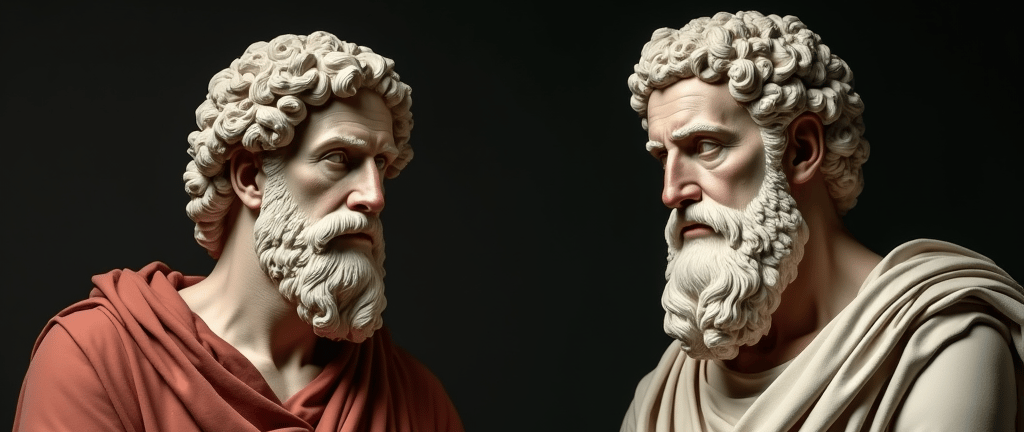How Stoic Philosophers Like Marcus Aurelius and Epictetus Lived Their Daily Lives
Stoicism, an ancient Greek school of philosophy, has been influential for centuries, and its teachings continue to inspire and guide people today. Two of the most famous Stoic philosophers, Marcus Aurelius and Epictetus, are renowned for their wisdom and the practical application of Stoic principles in their daily lives. In this article, we'll explore how these philosophers lived and how their examples can inform our own lives.
STOICISM
11/6/20242 min read


Marcus Aurelius: The Philosopher Emperor
Marcus Aurelius, who ruled as Roman Emperor from 161 to 180 CE, is perhaps the most well-known Stoic philosopher. Despite his powerful position, Marcus Aurelius strived to live a life of virtue, self-discipline, and service to others. He regularly reflected on Stoic teachings and wrote his personal thoughts and meditations in a journal, which later became the famous book "Meditations."
In his daily life, Marcus Aurelius emphasized the importance of:
Fulfilling his duties with diligence and integrity
Treating others with kindness and respect
Maintaining emotional control and resilience in the face of challenges
Continuously learning and growing as a person
Epictetus: The Philosopher Slave
Epictetus, born a slave in the Roman Empire, rose to become one of the most influential Stoic philosophers. After gaining his freedom, he dedicated his life to teaching Stoic principles and guiding others in their personal growth. Epictetus's teachings, recorded by his student Arrian in works such as "Discourses" and "Enchiridion," emphasize the importance of:
Distinguishing between what is within our control and what is not
Focusing on our own thoughts, actions, and attitudes
Accepting events that are beyond our control with equanimity
Living in accordance with reason and virtue
In his daily life, Epictetus lived modestly, focusing on his teaching and personal development rather than material possessions or social status.
Applying Stoic Principles to Modern Life
The examples set by Marcus Aurelius and Epictetus demonstrate how Stoic principles can be applied to daily life, regardless of one's circumstances or position in society. By focusing on what is within our control, cultivating virtue and self-discipline, and maintaining emotional resilience, we can navigate life's challenges with greater ease and find contentment in the present moment.
Some practical ways to incorporate Stoic principles into our daily lives include:
Regularly reflecting on our thoughts, actions, and values
Practicing gratitude and appreciating what we have
Cultivating self-awareness and emotional regulation
Engaging in continuous learning and personal growth
Serving others and contributing to our communities
Conclusion
The lives of Marcus Aurelius and Epictetus serve as powerful examples of how Stoic principles can be applied to daily life, leading to greater resilience, contentment, and personal growth. By studying their teachings and emulating their practices, we can cultivate a more virtuous, purposeful, and fulfilling life, even in the face of modern challenges and uncertainties.
Waste no more time arguing about what a good man should be. Be one - Marcus Aurelius
We suffer more often in imagination than in reality - Seneca
Wealth consists not in having great possessions, but in having few wants - Epictetus
